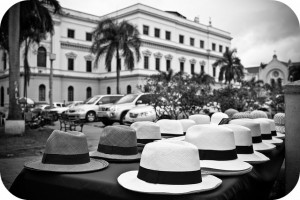 For decades some wealthy people and businesses have avoided paying taxes in their home countries by setting up “shell companies” in tropical locales like the Cayman Islands or the Bahamas. The lax tax rates of these nations allow individuals and organizations to quietly keep their money out of government coffers. In today’s digital age, however, it’s a lot harder to keep a secret than it used to be. Just ask the clients of the Panamanian law firm Mossack Fonseca, the alleged shell company maker at the heart of the massive data leak known as the Panama Papers.
For decades some wealthy people and businesses have avoided paying taxes in their home countries by setting up “shell companies” in tropical locales like the Cayman Islands or the Bahamas. The lax tax rates of these nations allow individuals and organizations to quietly keep their money out of government coffers. In today’s digital age, however, it’s a lot harder to keep a secret than it used to be. Just ask the clients of the Panamanian law firm Mossack Fonseca, the alleged shell company maker at the heart of the massive data leak known as the Panama Papers.
Drawing from more than 11.5 million documents, the Panama Papers provide an enormously detailed look at the offshore activities of a number of world leaders and celebrities. Heads of state in Iceland, Ukraine, Argentina and a clutch of Middle Eastern nations have all been implicated in the leaks. The outcry in Iceland became so severe that its prime minister resigned within days of being mentioned in the report. British Prime Minister David Cameron similarly came under fire when it was revealed that his father owns a shell company set up by Mossack Fonseca. Along with these government leaders, the Panama Papers also lists soccer superstar Lionel Messi as well as Russian cellist and Vladimir Putin confidante Sergei Roldugin. In fact, the latter is accused of acting as the center of a $2 billion scheme “in which money from Russian state banks is hidden offshore.”
Of course, these high profile offenders represent only the tip of an iceberg that reaches deep into the depths of fame and finance. With so much material to sift through, stories about Mossack Fonseca and its clientele will likely remain in the headlines for weeks to come. Still, there’s something significant missing in this scandal of global proportions: Americans. So far no prominent U.S. citizens have been implicated in the leaked documents. All told, about 3,500 people with American addresses appear in the Panama Papers as shareholders in offshore companies. That’s no guarantee of their citizenship, however. Plus, the more than 200 U.S. passports found in the documents seem to belong mainly to retirees who set up shell companies in order to buy Caribbean property rather than hide their income.
So where are all the Americans then? After all, many people in the U.S. don’t particularly enjoy paying their taxes, a fact that is especially apparent around this time of year. The simple truth is that most rich Americans don’t need Panama to hide their cash; they just go to corporate-friendly states like Nevada or Delaware. Our next post will take a look at these domestic tax havens and how they fit in to the global tax avoidance network.
Questions:
- Why is it unethical for wealthy individuals and companies to keep money hidden from the government?
- Should government leaders implicated in the Panama Papers take a cue from the former prime minister of Iceland and resign their posts?
Source: Liam Stack, “The Panama Papers: Here’s What We Know,” The New York Times, April 4, 2016. Photo by Dennis Tang.
